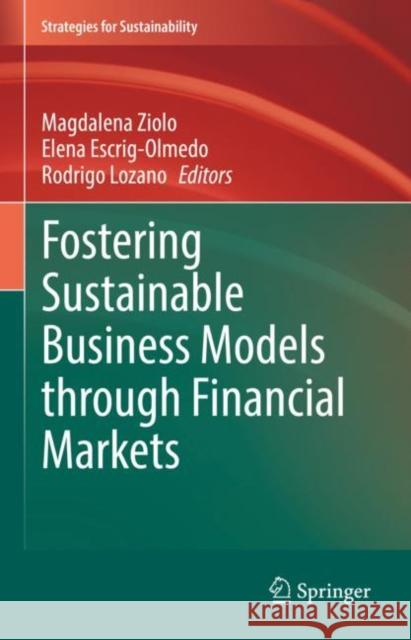Fostering Sustainable Business Models Through Financial Markets » książka
topmenu
Fostering Sustainable Business Models Through Financial Markets
ISBN-13: 9783031073977 / Angielski / Twarda / 2022
Fostering Sustainable Business Models Through Financial Markets
ISBN-13: 9783031073977 / Angielski / Twarda / 2022
cena 401,58
(netto: 382,46 VAT: 5%)
Najniższa cena z 30 dni: 385,52
(netto: 382,46 VAT: 5%)
Najniższa cena z 30 dni: 385,52
Termin realizacji zamówienia:
ok. 16-18 dni roboczych.
ok. 16-18 dni roboczych.
Darmowa dostawa!
The aim of this volume is to foster more sustainable business models through financial markets. To that end, it is necessary to know the main global challenges facing financial markets and their impact on creating sustainable value in business models of enterprises in the context of sustainable adaptation. The book focuses on assessing the decision criteria adopted by financial markets in the process of transaction risk valuation, in terms of the presence of Environmental, Social, and Governance (ESG) criteria, and by assessing the impact of including these criteria in the risk assessment process by financial markets in business decisions, leading as a consequence to building new value in the form of a sustainable business model.The book presents global ESG risks facing the financial markets, and discusses how ESG risks are managed and monitored, and how financial markets can measure and operationalize extra-financial risks in its assessment process. The book also analyses ESG risk implications and influences on company behavior, and the actions that companies should take considering the ESG assessment requirements of financial markets. Finally, it provides a comprehensive, structured, and systematic view of how financial markets and companies should adapt and improve their business models. The book provides unique challenges for investors, companies, financial markets, and for our society as a whole, advancing traditional risk management approaches to address global risks.











